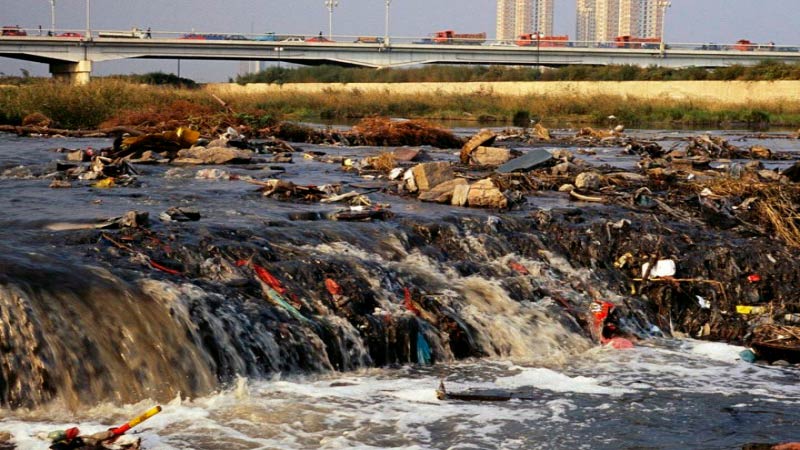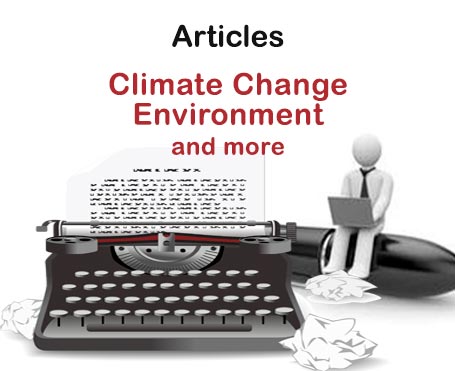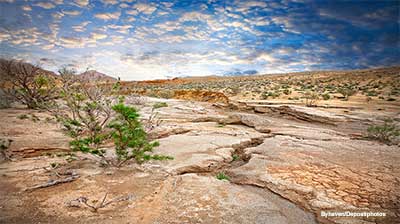FAQs about Water Pollution and Shortage

10. What are the causes of water scarcity?
Water scarcity is a major challenge for humanity. It is important to be aware of the causes of water shortages, because they are varied and some of them can be solved without too much difficulty. Water scarcity affects about “2.8 billion people in the world for at least one month each year. More than 1.3 billion people do not have access to drinking water ”.
Main causes of water shortage:
Absolute lack of water. The sites where this occurs are at a considerable distance from the nearest water source. To reach these water reservoirs, the inhabitants must travel dozens of kilometers to get the vital liquid. This is the case of natural desert areas. There are also the extensive areas that have suffered poor soil management due to anthropogenic causes, which has led to their desertification.
Lack of economic resources to guarantee water supply. We are talking about money to improve, expand or build the infrastructure that is needed to meet the water needs of the population of a city or region. We refer to reservoirs, treatment plants and water supply networks. This case can be solved with monetary resources, fighting corruption and the diversion of money for less important or unnecessary works.
The water contamination. The problem covers a large part of the world’s rivers, lakes and aquifers, whose waters have been degraded by pollution and the discharge of toxic substances to the point that they are not suitable for human consumption.
Wastewater from industrial landfills contains oils, phosphates, nitrates, fluorides, lead, arsenic, selenium, cadmium, manganese, mercury, and even radioactive substances. Another type of very lethal pollutant is oil spills. Many of these can take hundreds and even thousands of years to be recycled by nature.
Climate change. Water scarcity can be made worse by climate change, especially in arid and semi-arid areas, which are already water stressed. Thus, the protection of the world’s freshwater resources requires that the impact of human origin on the environment and climate be addressed in an integrated way. It is critically important to invest in programs that protect the natural environment, conserve water resources, and use them efficiently.
Human activities. Increased urbanization, agricultural activities, fertilizer and pesticide use, soil degradation, population concentrations, and poor waste disposal affect the availability of freshwater resources.
FAQs about Pollution and water shortage
Updated and extended in August 2021
Pollution
1. What is the hydrosphere?
2. Why is water important?
3. What is water pollution?
4. What are the main water pollutants?
5. What diseases does water pollution transmit?
6. Which are the countries that best manage their waters?
7. What should be done to keep the waters clean?
8. What are oligotrophization and eutrophication of lakes?
Shortage
9. What is water scarcity?
10. What are the causes of water scarcity?
11. What is water stress, periodic scarcity and water scarcity?
12. Can we finish drinking water on the planet?
13. What are the cities with the greatest water shortage?
14. Could wastewater be used to solve the water shortage?
15. Why is not the water in the seas desalinated?
.
Sources
United Nations. Global Issues. Water. https://www.un.org/en/global-issues/water
United Nations. UN-Water. Water Scarcity. https://www.unwater.org/water-facts/scarcity/
UNESCO. Is wastewater the new black gold? 21/03/2017. https://en.unesco.org/news/wastewater-new-black-gold
UNESCO. Water Scarcity and Quality. https://en.unesco.org/themes/water-security/hydrology/water-scarcity-and-quality
Wikipedia. Water scarcity. https://en.wikipedia.org/wiki/Water_scarcity
Other sections of Pollution and degradation of soils

Our planet could have been called “Water” instead of Earth, because of the immense amount of the vital liquid that it houses. For something is blue and not ocher, although the atmosphere also helps paint that wonderful tone…

You can also see it in…
Infographics

Photo Gallery.

Video Gallery


